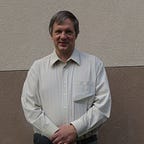TDG Checks and Balances
TDG 38
The TDG also has several checks and balances. As I mention them, I hope they will provide further insights into how a TDG works.
The Annual Elections
The TDG uses annual elections. The reason for the shorter term of the TDG is that if an elected official, at any tier, is no longer serving his or her position well (for example, health reasons or corrupt activities), that person can be replaced within one year. There is no need for any kind of political subterfuge or an impeachment process or allowing ineffective representation to carry through for several years. The person is replaced rather efficiently and without much fanfare. The TDG more or less continues with normal operations knowing the ineffective representative won’t be around much longer.
The Indirect Elections
In a TDG, most citizens will vote only for their neighborhood representative. They will not vote for people at the higher tiers. This feature ensures a better judgement for advancement within the TDG. By serving together, the elected representatives are in a much better position than the general citizenry to observe the qualities that merit advancement in the TDG. They will have first-hand experience with the words, actions, people skills, intellect, wisdom, energy, and commitment of the people serving in the same tier. In essence, any tier is actually a very good proving ground of whom, from within the tier, should be promoted to the next highest level.
With each tier making reasonably wise decisions about who should move up, the TDG will promote the more capable and trustworthy citizens to the top positions of governance by the indirect election process.
More Citizen Involvement
In that 100,000-person city I presented earlier as an example of a TDG, about 630 citizens would hold an official elected position. In contrast, a similar city in Canada (with its western democratic structure) would have less than 20 representatives at the municipal, provincial, and national levels.
With the TDG, many more citizens will be called into governance at some time in their lives. Their service, whether it be short or long time or whether it be in the lower or higher tiers, will give them a sense of fulfillment in their lives by having played an important part in trying to make the world a better place. In essence, the TDG creates a more contented citizenry which ultimately should be the goal of governance.
As well, these citizens will have a greater appreciation for the complexities of governance. Not only will they, when they are no longer serving, have more respect and empathy for those citizens in the TDG trying to wrestle with the various societal issues, they will be credible spokespeople to their friends and acquaintances of how well the TDG works. They can also use their TDG experience to help make their own community stronger even though they no longer have a formal TDG position. In essence, the experience gained in those 630 positions will cascade throughout this TDG city.
Just as the western democratic model opened many opportunities for citizens who were not born into aristocratic families to channel some pent-up social pressure into more constructive activities, the TDG is going to use more people whose knowledge, experiences, and wisdom can be a great asset in governance.
An Advisory Board
The TDG should appoint advisors to itself. These advisors should have considerable experience working in the TDG. When appointed, however, they cannot serve simultaneously as a representative anywhere in the TDG or be a direct part of the decision-making process.
Instead these advisors will mostly be concerned with the process of providing better governance. They will meet with the elected tiers and provide them with experience and insights about governance. The advisors will work with several elected tiers, and this experience of seeing the TDG from different angles will become one of the advisor’s tools.
In essence, this check and balance of the TDG is a positive force rather than the negative or constraining check and balances — such as the opposition politicians and the media — employed by the western democratic model
I will discuss the advisory role more thoroughly in Chapter 5.
